18th Festival of Serbian Fantastic Film – The report
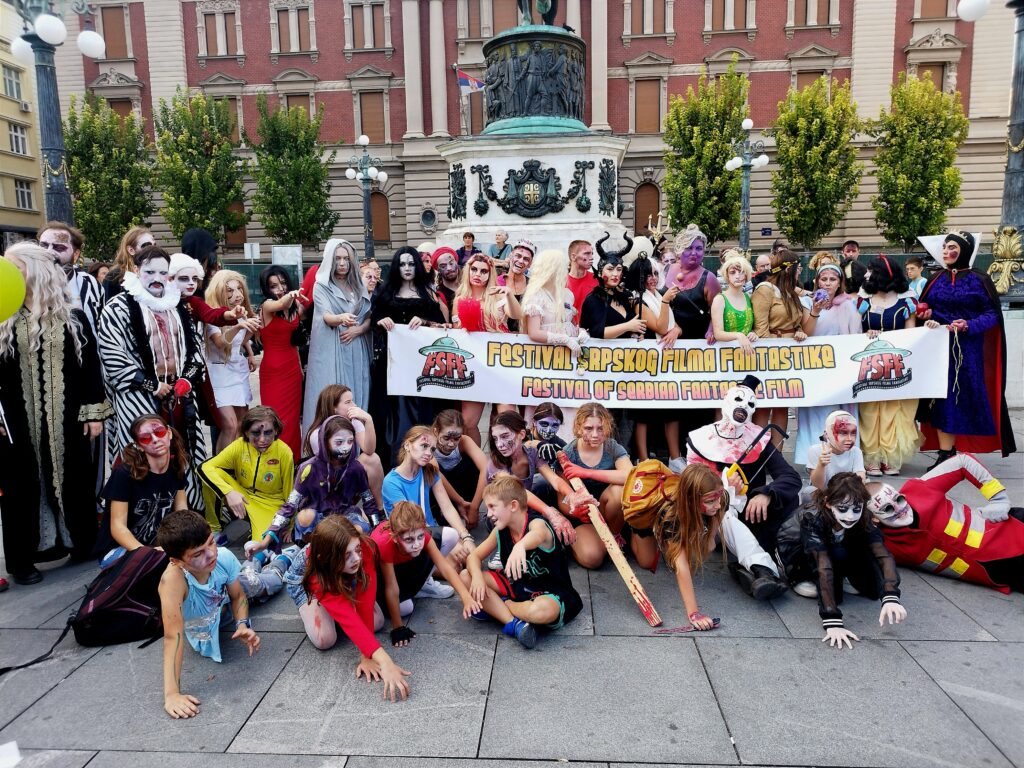
This year, the Festival of Serbian Fantastic Film celebrated its eighteenth birthday, marking it as the oldest event dedicated to the genres of fantasy and horror films of all kinds and subgenres, with an emphasis on domestic and regional productions. Over the years, the festival has grown, evolved, and attracted guests from abroad, including globally relevant names in genre cinema such as Richard Stanley, Lamberto Bava, Mick Garris, Sergio Stivaletti, and many others.
Operating on a modest budget, often relying on sheer enthusiasm, the festival has persevered through the years.
This year, there were no guests of the caliber of Richard Stanley or other planned names, but we had Macedonian director Vardan Tozija, who is a director of the excellent post-apocalyptic Macedonian film M (more about it later), along with adult actress and writer Stoya and of course a group of enthusiastic zombies and cosplayers – this year’s zombie walk, in my opinion, was on par with previous one, perhaps even better. I would have liked to see more attendees at the screenings (10-15 people in most cases, sometimes less, sometimes more), especially during the screenings of the short films, but overall it wasn’t that bad.

As I mentioned, the zombie walk went quite well. After the walk there was an award ceremony, when Stoya, Nenad Okanović, and Vardan Tozija presented awards for the best zombies. I’d like to commend the kid in the blue shirt who performed his zombie role with great enthusiasm – he yelled, growled, flailed his arms, and maintained a zombie posture, crawling without breaking out of character for the entire hour. In the end, he received a well-deserved award for his performance.
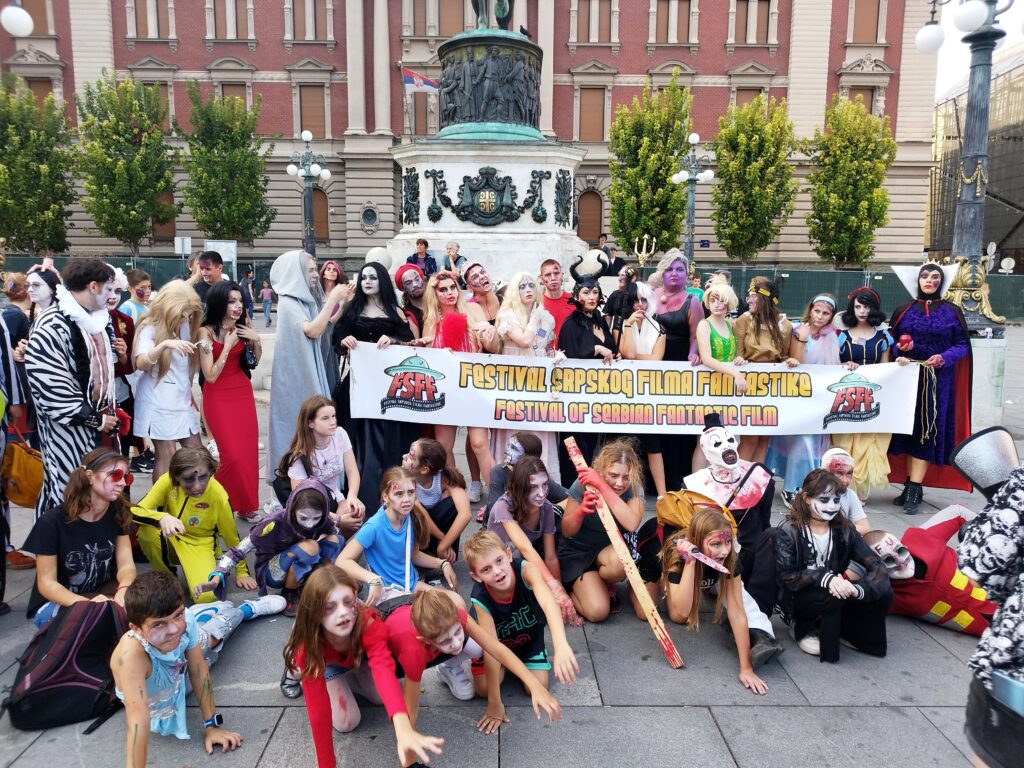
Festival’s competition programme
For the domestic, regional, and youth competition selections of the Festival of Serbian Fantastic Film, 20 films were submitted, and the selector, Jovan Ristić, selected 19 films for the competition.
I Domestic selection: 10 films (143 min)
Competing for three O’Scull awards: Best Film, Best Director, Best Screenplay.
01. BLAGO PUŽEVIMA – Olga Milisavljević (33 min, Serbia)
02. JEDI ME – Milana Miljković (15 min, Serbia)
03. FAKELOOK – Duško Pašić (25 min, Serbia)
04. GEJMING DRUGAR – Iva Milojković (17 min, Serbia)
05. KOŽA – Jovana Lazin (15 min, Serbia)
06. KRALJ NIČEGA – Aleksa Gajić (18 min, Serbia)
07. MIJAZMA – Petar Tkalec (11 min, Serbia)
08. NO MILK TODAY – Lazar Bačkonja (2 min, Serbia)
09. NOĆ – Minja Vuletić (3 min, Serbia)
10. STRAH – Erhad Mašović (4 min, Serbia)
II Regional selection: 5 films (76 min)
Competing for one O’Scull award: Best Regional Film.
01. AMEN – Ana Marija Janković (20 min, N. Macedonia)
02. KAKO SU GRADOVI POSTALI OAZA ZA PČELE – Jakša Minić (9 min, Montenegro)
03. KUDA IDU IZGUBLJENE MAČKE – Amar Komić (23 min, BiH)
04. LINK – Stanka Gjurić (5 min, Croatia)
05. SMRTNA URA (The Death Hour) – Tomaž Gorkić (19 min, Slovenia)
III Youth selection, up to 18 years: 4 films (40 min)
Competing for the Small O’Scull Award.
01. BOGOMOLJKA – Marko Ružićić Rootkey (8 min, Serbia)
02. EUFEMIA – Kosta Mitić (15 min, Serbia)
03. ORFEJ – Sava Čarapić (8 min, Serbia)
04. ZAMRAČENJE – Jakov Šalipurović (9 min, Serbia)
IV Foreign film selection: 10 films (169 min)
Competing for one O’Scull award: Best Foreign Film.
For the competition selection of foreign short films at the 18th Festival of Serbian Fantastic Film, selector Miroslav Lakobrija and co-selector Saša Avramović selected 10 films for the competition.
01. DARK MOMMY – Courtney Eck (13:26 min, USA)
02. SELFIE – Giulio Manicardi (13:30 min, Italy)
03. JUGGERNAUT – Daniele & Emanuele Ricci (20 min, Italy)
04. DREAM CREEP – Carlos A.F. Lopez (12:34 min, USA)
05. AMYGDALA – Oskar Johansson (12 min, Sweden)
06. EMILY’S MOUNTAIN – Tal Somech (22 min, Israel)
07. ESCAPE ATTEMPT – Alex Topaller, Daniel Shapiro (28 min, USA, Poland)
08. WHERE THE MOUNTAIN WOMEN SING – Juefang Zhang (15 min, USA, Taiwan, Hong Kong)
09. DANIEL CAME HOME – Brian Gregory (16 min, UK)
10. NOBODY SOMEWHERE – DN Bianco (17:30 min, Argentina)
The first evening began with a dance performance ″Leptirice“ (The She-Butterflies, named after the first Serbian/Yugoslav horror film), from a dance group UV Dance (quite an interesting act), followed by the premiere of the Croatian zombie comedy ŠALŠA (SUMMER TEETH) directed by Dražen Žarković, along with two short films from the international selection: DARK MOMMY and JUGGERNAUT.
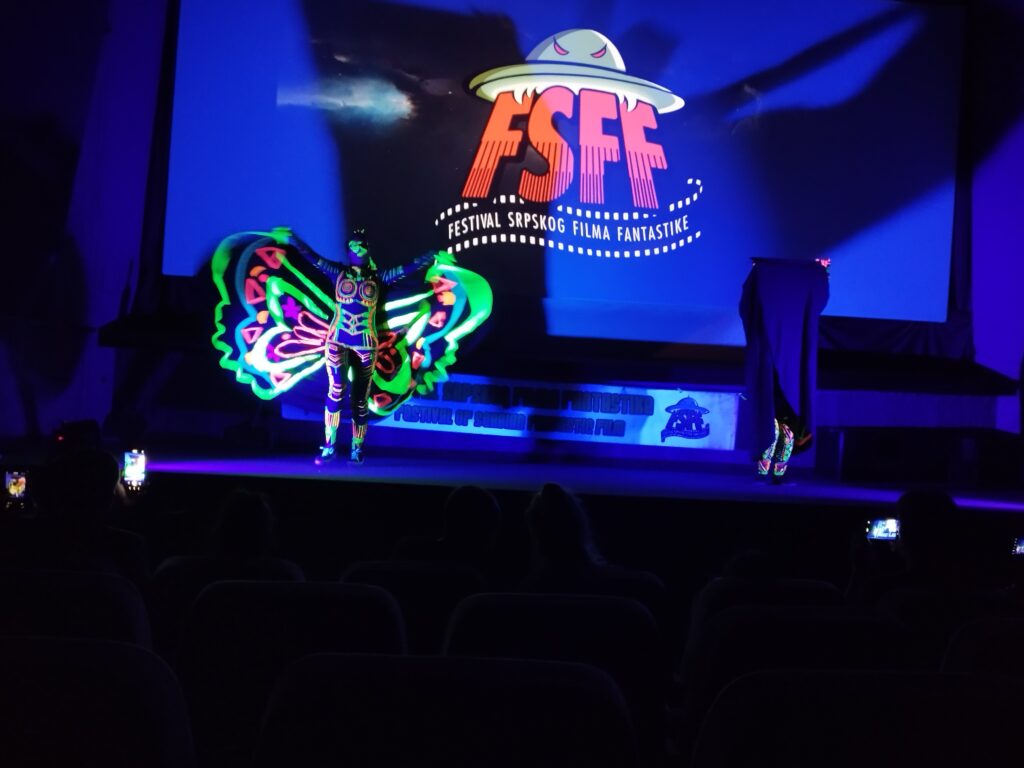
ŠALŠA is a good and entertaining film, genuinely funny at times. Its only major flaw is that it veers into preachy territory towards the end. Not too much, but still unnecessarily preachy. What it aims to convey is something I completely agree with, just to be clear, but it could have been executed with a bit less sloganizing and deus ex machina solutions, and a bit more concrete action. Overall, it’s a rather humorous and entertaining film, a satire on nationalism, where a clear (even overly bold for my taste) parallel is drawn between swallowing of nationalist content and zombification. Let’s say it ranks similar in quality as the 2019 Croatian zombie comedy THE LAST SERB IN CROATIA (POSLEDNJI SRBIN U HRVATSKOJ, directed by Predrag Ličina), a film we see on a TV screen at one point during the SUMMER TEETH.
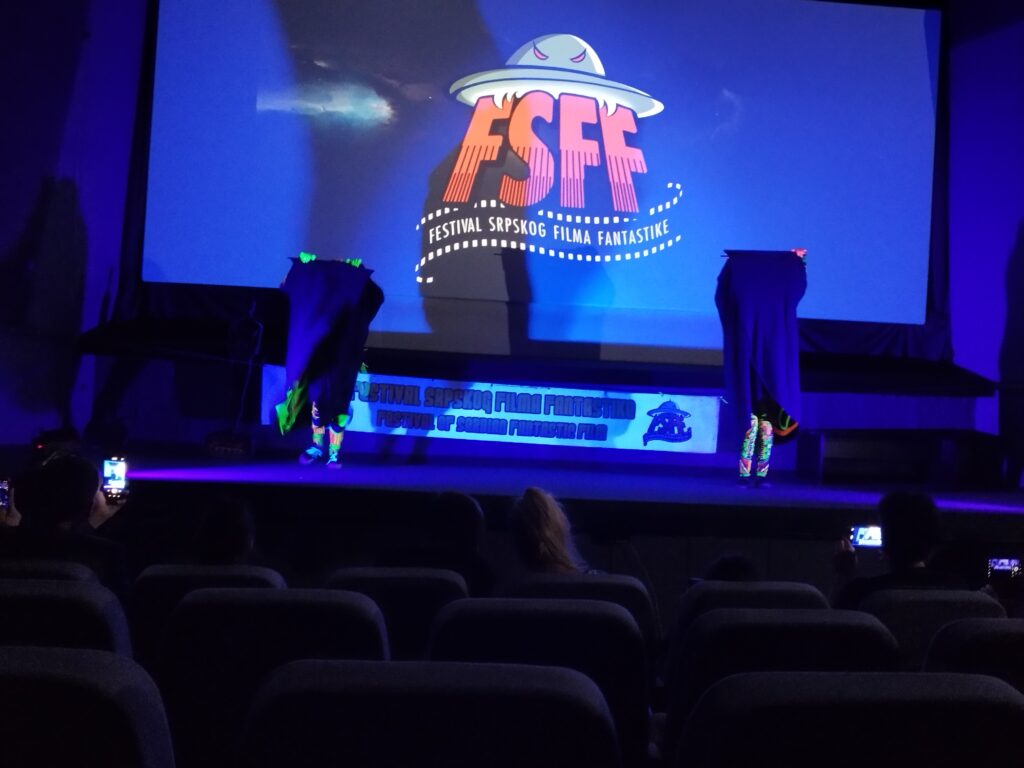
The second day of the festival began with the selection “Fantastic Kids,” competing for the Little O’Scull award. It was nice to see the enthusiasm and, in a few cases, quite interesting films. The film that I liked the most ZAMRAČENJE, by Jakov Šalipurović, was the one who won the award. It’s a post-apocalyptic film that shows that the authors know the genre well, using some typical solutions in a satisfying way, with some rather witty dialogue at times. After that, there was a regional short film competition, followed by a screening of the Romanian film THE SECRET OF PIN-UP ISLAND. Ah, what to say about that film… I’m definitely not the target audience for this kind of film and can’t say I enjoyed it. I respect the subject matter and even the decision to film everything in a point-and-click video game style, but the result bored me to death. Kudos for the effort, that’s all I can say. Thanks, but no thanks.
After the film, there was a conversation with actress Lora Đurović, led by Jovan Ristić. There, we learned some interesting information – about the theme of addressing depression, female depression specifically in this case, the film’s creation and its post-production (as far as I understood, a full seven years passed from the start of filming to its release in theaters!) There were also a couple of questions and observations from the audience (why only female depression, and not male too, why does the film have such a form and narrative), and despite my dislike for the film, the evening concluded in a satisfying way.
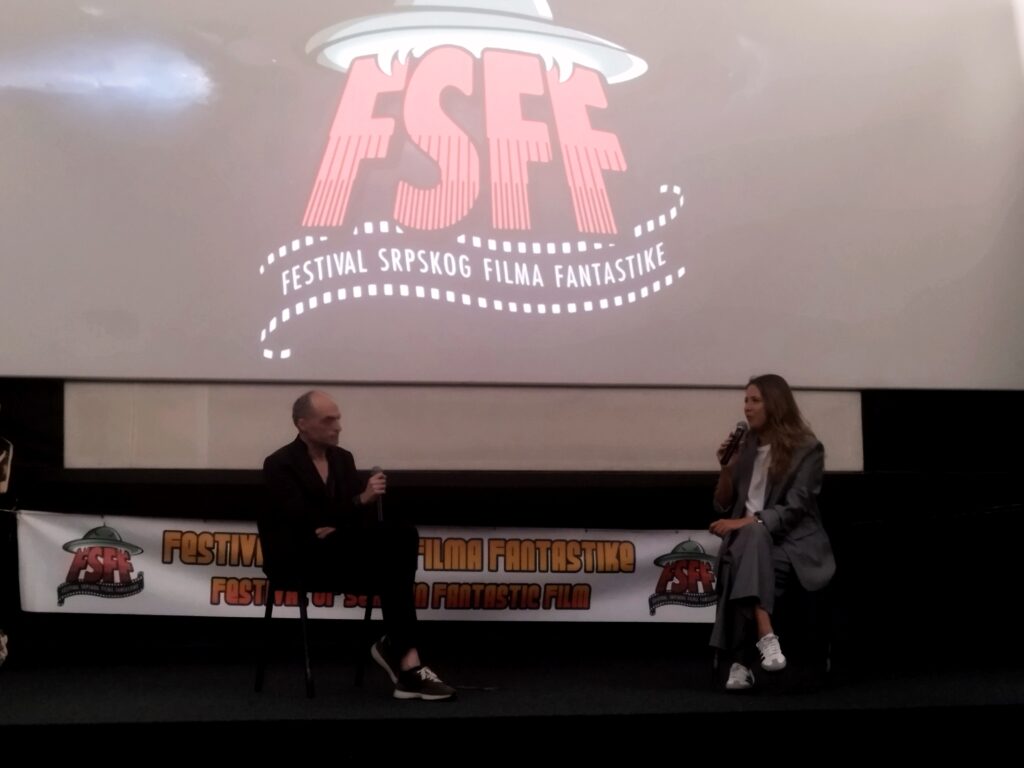
The third day was reserved for the domestic short film competition. I had seen most of the short films earlier, and regarding this block, I managed to catch a film KING OF NOTHING (KRALJ NIČEGA), by Aleksa Gajić and Džoni Racković, which ultimately won the O’Scull award for best domestic film.
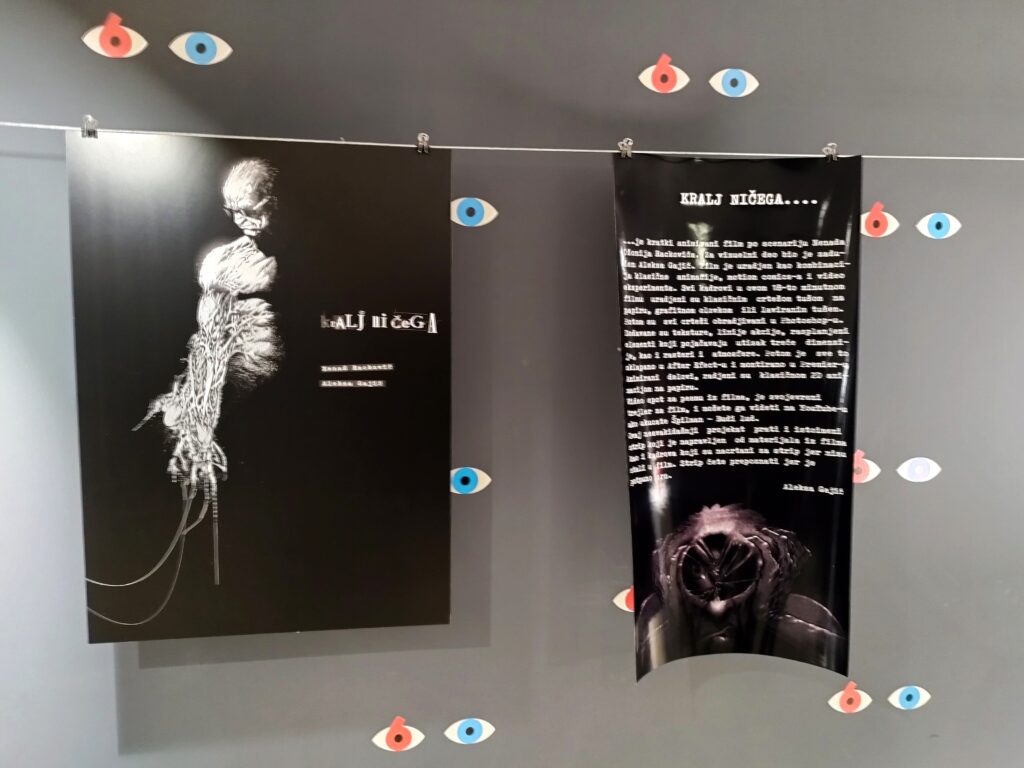
Then came the screening of the film I was most eager to see, and I’m glad it didn’t disappoint me. The Macedonian film M, directed by Vardan Tozija, is excellently directed and acted, with extraordinarily well-utilized locations that fit organically into the whole. It’s a post-apocalyptic horror drama, a coming-of-age study in isolation and the longing for contact despite all the obstacles. The film also contains clear critique of extremist isolationist political movements (the allusions to current movements are evident, but the film is very universal in its intent, which is not a flaw in this case), and everything operates in a grey area, without typical “good guy” groups and characters. Here, those who appear as a mixture of helpers for the remaining people and the cult-like mercenaries are portrayed as groups full of extreme and twisted ideas about fighting and “helping”, while in the actions of a few characters who at a first glance seem extreme and twisted, we discover grains of reason and logic in a world of madness. After one of the central harrowing scenes in the film, all those groups that have transformed into harbingers of death, become even more repulsive, worse than the zombies who are a constant threat to our main characters. The children, who should be untouched by the poison of the actions of the adults, also must develop their shield to survive, which inevitably marks them for life, leads them to grow up and face evil and death. None of this would work so well if the characters weren’t masterfully acted, the direction wasn’t precise and measured, and the locations weren’t perfectly utilized.
After the film, there was a discussion with the director, again led by Jovan Ristić. The director proved to be a very interesting and pleasant person, with a heart in the right place regarding his approach to film and fighting against the typical “suffering for festival export” films from the region.
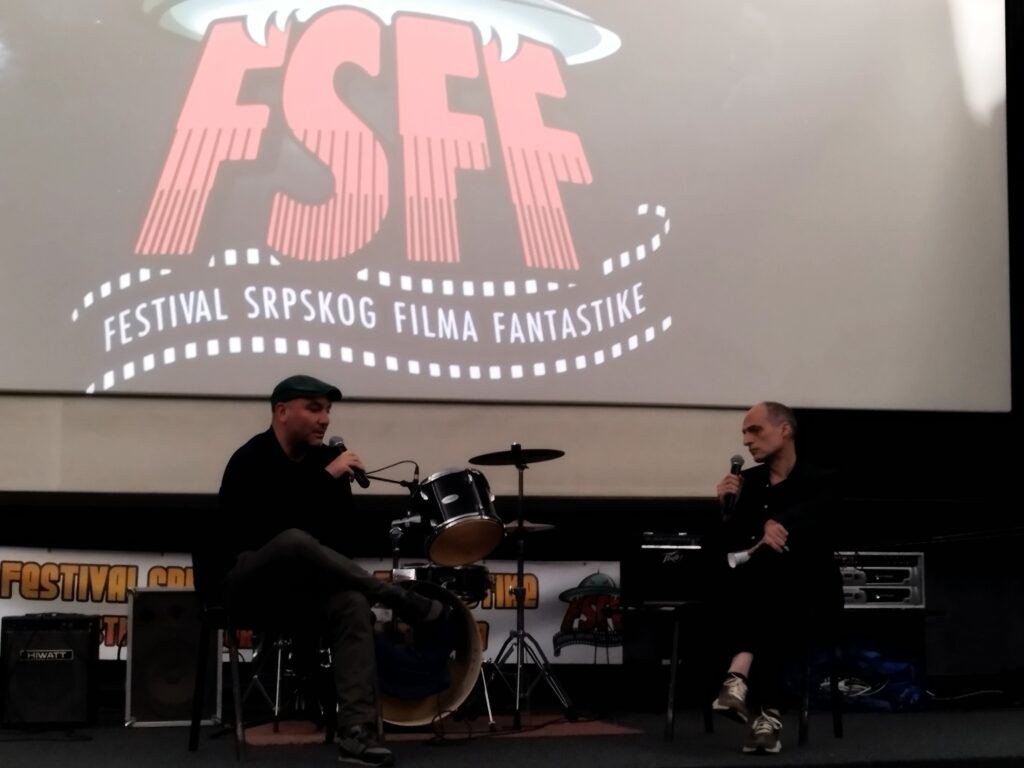
After the discussion, the kids from the music workshop KP2 performed an excellent concert.
The fourth day of the festival began with a block of films from the international selection, curated by Miki Lakobrija and me, and continued with the O’Scull awards ceremony.

The jury decided as follows:
BEST FILM
Kralj ničega (Aleksa Gajić, Serbia)
BEST DIRECTOR
Kralj ničega (Aleksa Gajić, Serbia)
BEST SCREENPLAY
Mijazma (Petar Tkalec, Serbia)
BEST REGIONAL FILM
Smrtna ura (Tomaž Gorkič, Slovenia)
BEST FOREIGN FILM
Escape Attempt (Alex Tapaller, Daniel Shapiro, USA/Poland)
BEST FILM IN THE “FANTASTIC KIDS” CATEGORY
Zamračenje (Jakov Šalipurović, Serbia)
SPECIAL MENTION
– Noć (Minja Vuletić, Serbia)
– Amen (Ana Marija Janković, North Macedonia)
– Amygdala (Oscar Johannson, Sweden)
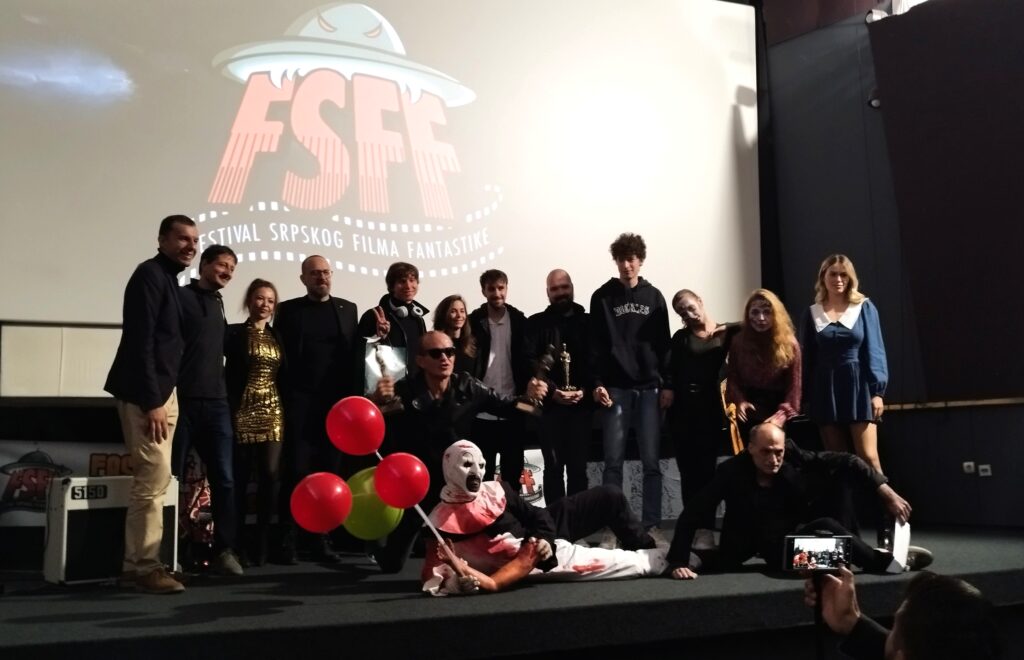
After the award ceremony, we had a surprise concert, during which young guitarist Vuk delivered an excellent solo performance.
After the ceremony and the concert, another feature film, WORKING CLASS GOES TO HELL (RADNIČKA KLASA IDE U PAKAO), a film by Mladen Đorđević was shown, which I didn’t stay at, as I had already seen the film three months ago at the Slaughter Horror Film Festival (which I highly recommend to all horror and metal fans). I would’ve stayed for the announced Q&A with the director, but we were informed that he was unable to attend.
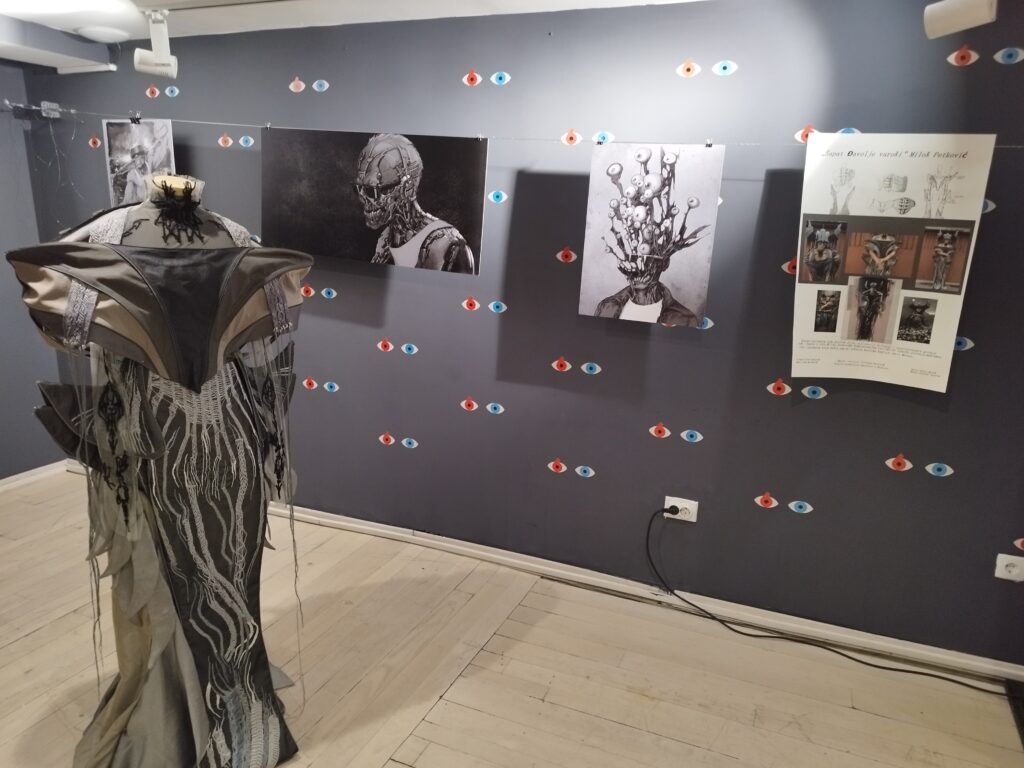
Additionally, the hall of the Cultural Centre of Belgrade Movie Theatre (DKC) was adorned with works by Sanja Rajić, Milena Zović, Milan Đurić, and Aleksa Gajić, all of which were worth seeing in person; my photographs certainly cannot capture the strength of their works.
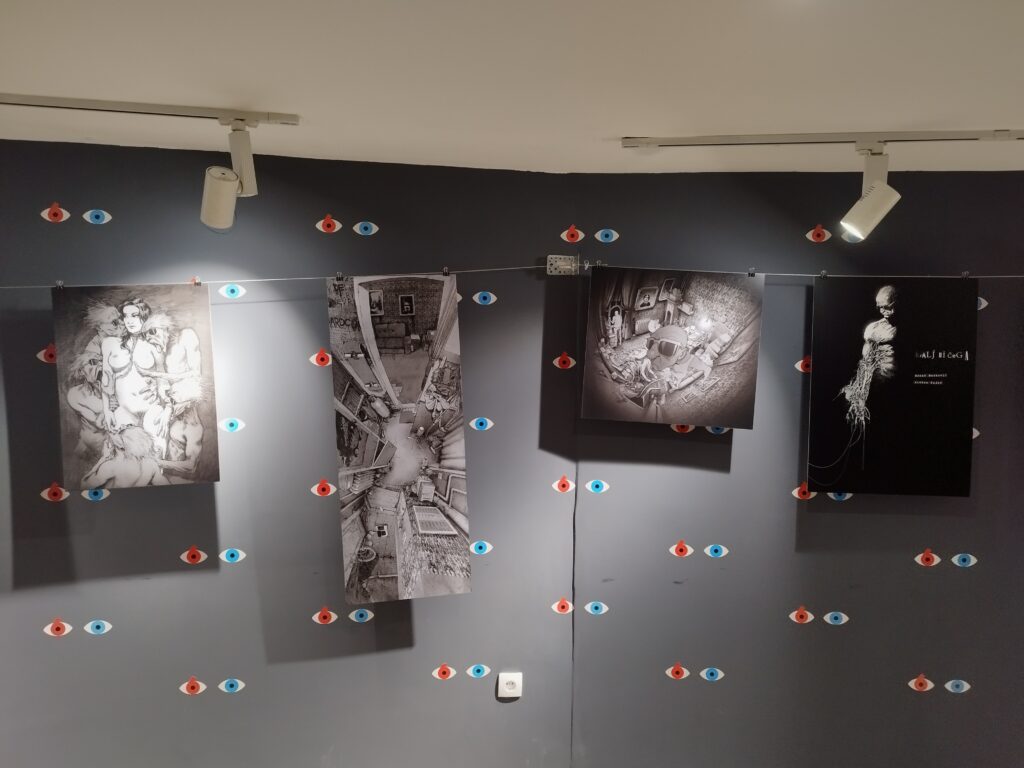
The evening ended with socializing, joking, and making plans for the next festival.
All in all, I’m quite satisfied with how everything turned out, given the low budget and the usual issues.
Come and check out the next year’s festival, we’ll have such sights to show you!
Note: © All rights to the textual content, photos and videos in this article are owned by Saša Avramović, for Cinematic Nightmares


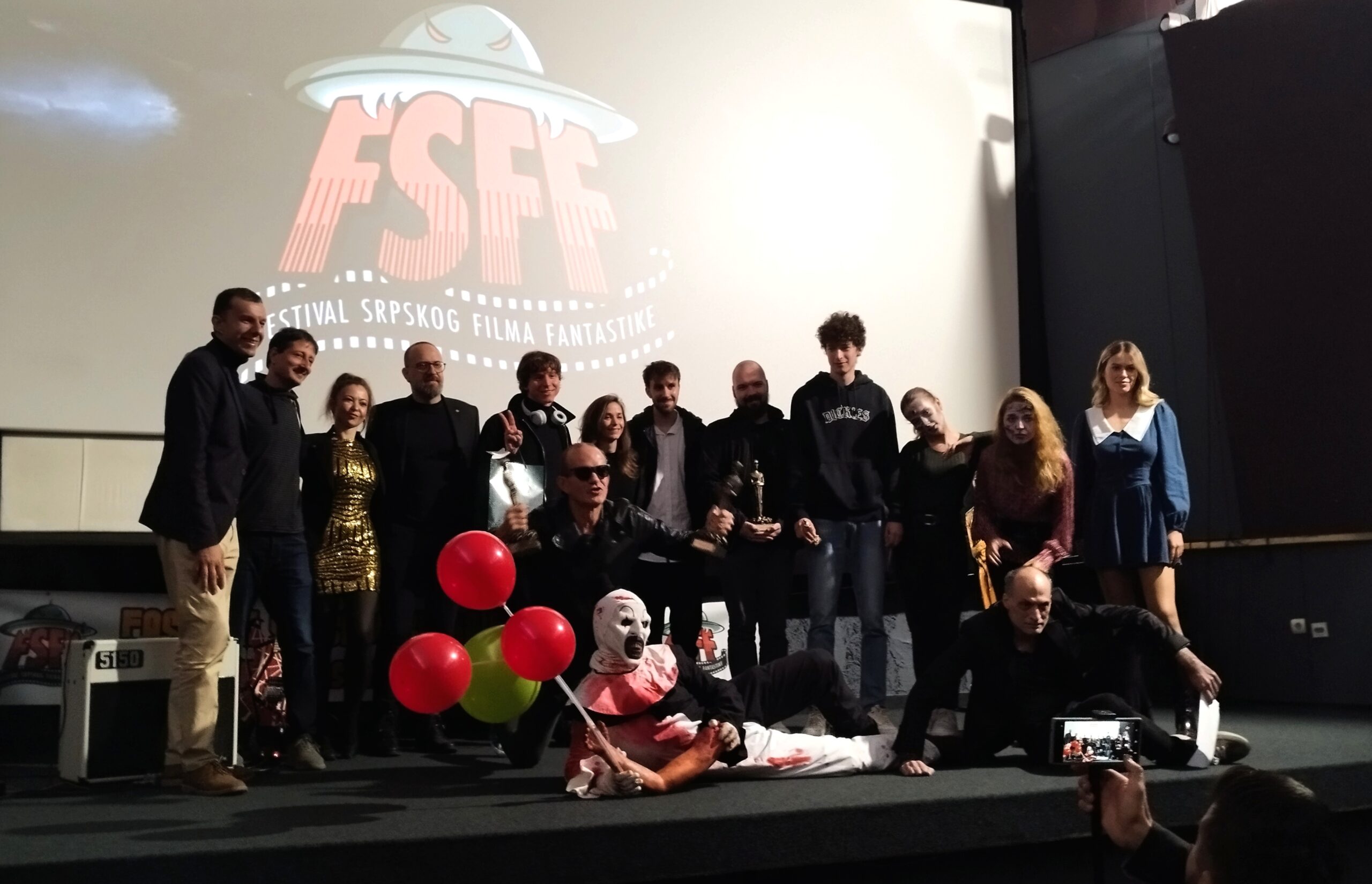
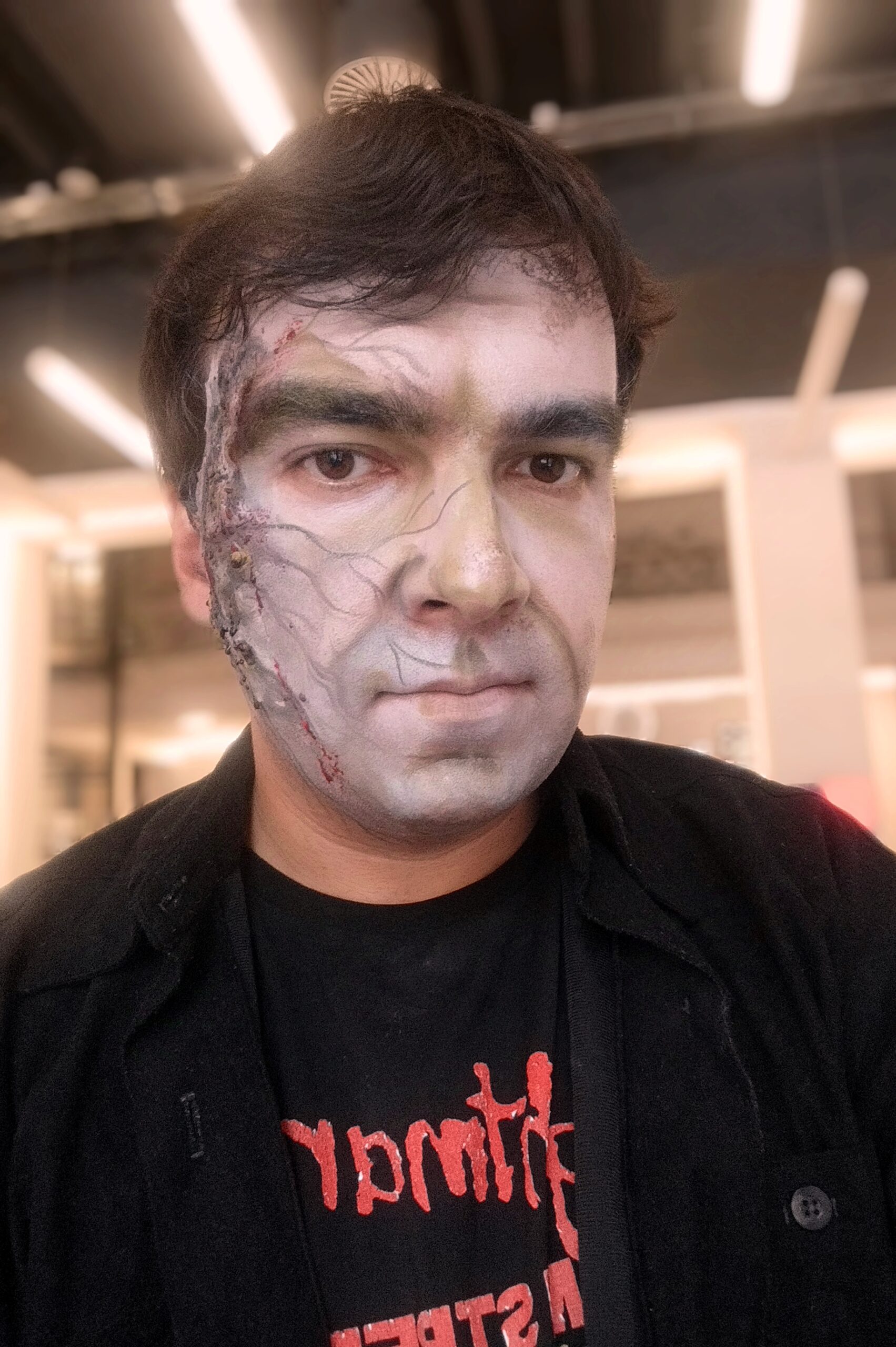
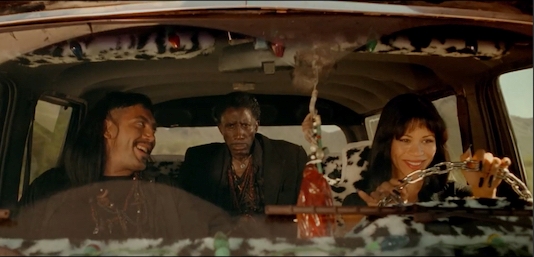

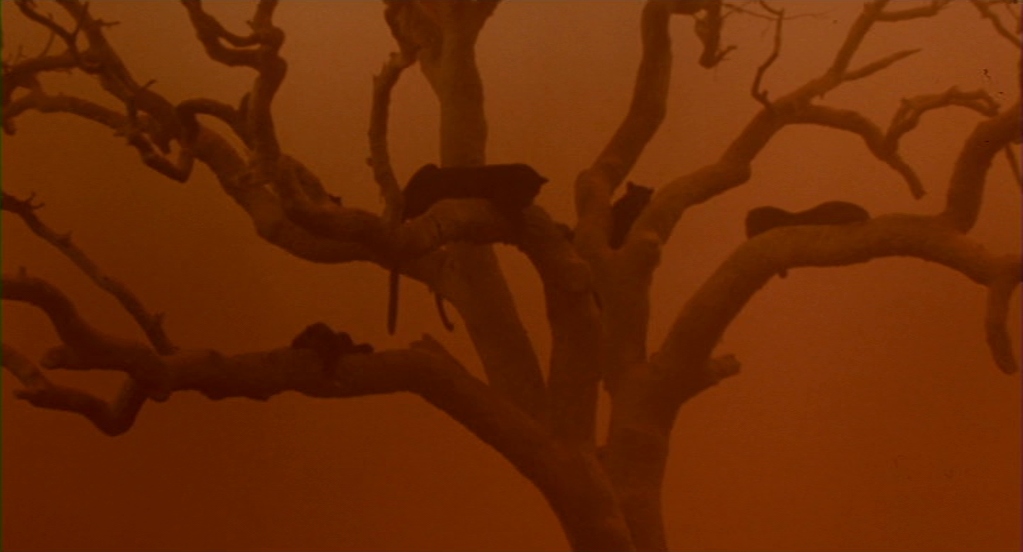
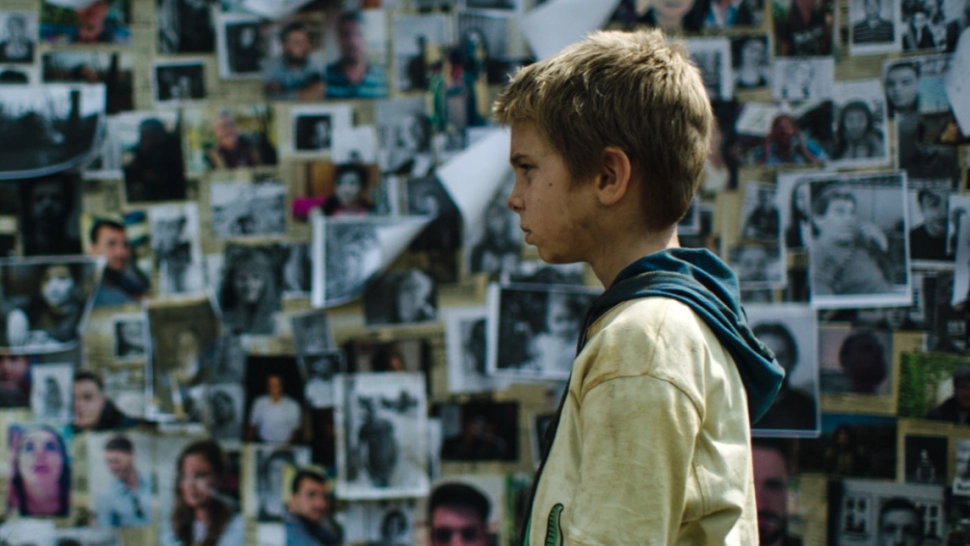

Leave a Reply